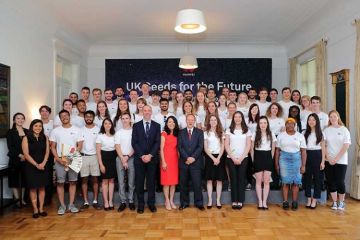Blue-skies university research must continue to be state funded while building closer links with the private sector, said Edith Cresson, European research and innovation commissioner.
Mrs Cresson, who spoke to The THES while in London last week, said that pure, as opposed to applied, university research was vital to the society and economy of Europe. She said: "If we had paid attention only to improving candles, we may never have discovered electricity."
Private investors were deterred because pure research often has little immediate obvious worth to industry, she said, adding that states should support pure research. Mrs Cresson warned, however, that this did not mean that pure university research should shut itself away from the commercial world.
Mrs Cresson said: "If you sacrifice the future for the immediate desire for money and shareholders, it will be a very bad thing. We must have fundamental research funded by the state, with the help of the European Union. There must be a balance.
"But while we have to have pure research, nothing forbids pure research from having links with the outside world. The fact that pure research is very often apart from the outside world is something that should stop."
Despite pure research's importance, Mrs Cresson said that one of Europe's biggest challenges is to increase the amount of privately funded applied research in universities.
The latest figures show that, on average, Europe spends 1.8 per cent of gross domestic product on research, compared with 2.4 per cent ($50 billion more) in the United States. In 1997 European venture capital funds invested x9.6 billion (Pounds 6.6 billion) while the equivalent of x10.3 billion was invested in the US. But the real difference was that only 5.7 per cent of the European sum was invested in start-up companies, many of which start in universities, compared with 26 per cent in the US. And a quarter of the European cash was used in high-technology fields, compared with 70 per cent in the US.
Mrs Cresson said: "We have excellent researchers in Europe, but we are very weak in how we transmit research results into the production of goods and services. It is a cultural tradition that means that there is a gap between the world of the university and the companies."
The European Commission's fifth framework for research and innovation has recently had its Ecu 15 billion (about Pounds 10.5 billion) budget approved, representing a 4.6 per cent real-terms increase. At least a tenth of the money for each programme in the fifth framework programme will go to small and medium-sized enterprises, which create new jobs but often lack the resources to benefit from research.
Research, pages 29-32
Register to continue
Why register?
- Registration is free and only takes a moment
- Once registered, you can read 3 articles a month
- Sign up for our newsletter
Subscribe
Or subscribe for unlimited access to:
- Unlimited access to news, views, insights & reviews
- Digital editions
- Digital access to THE’s university and college rankings analysis
Already registered or a current subscriber?








